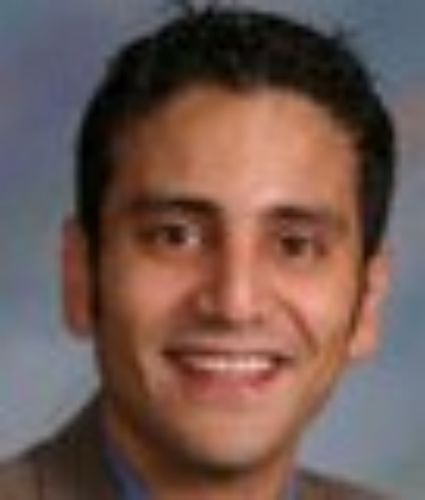Sep 08, 2011
DePaul University Experts Available to Discuss Various Aspects of How 9/11 Tragedy Changed the World in the Past Decade
DePaul University Experts Available to Discuss Various Aspects of How 9/11 Tragedy Changed the World in the Past Decade
U.S. Foreign Policy and the Middle East
Khalil Marrar Assistant Professor of Political Science (773) 325-8682 or kmarrar@depaul.edu EDITOR’S NOTE: This link, http://yousend.it/oXwgFX , provides broadcast-quality HD interview segments with Khalil Marrar discussing global geo-political developments since Sept. 11, 2001. The video clip is made available without copyright restriction and has been compressed with the following specifications:
Quicktime H.264 10mbs 44.1khz NTSC HD 1280x720 29.97fps Audio Ch. 1 - Main Audio Ch. 2 - Boom Interview TRT: 2:50 Kaveh Ehsani Assistant Professor of International Studies (773) 325-7456 or kehsani@depaul.edu Co-editor of the secular political journal Goftogu (Dialogue) in Tehran and a contributing editor of the Middle East Report (MERIP) in Washington D.C. Ehsani teaches courses on Middle East society and political economy, with a specialty on Iran. “Sept. 11 and subsequent U.S. direct military involvement in the Middle East have permanently changed the configuration of politics in the entire region. For the foreseeable future, insecurity and unpredictability will characterize the state of politics in the Middle East as established regimes experience fundamental challenges to their legitimacy. We are no longer at a stage where mere U.S. military withdrawal from occupied Iraq and Afghanistan can make possible a return to the former status quo. Whether we like it or not, the U.S. is now an engaged regional player rather than a supposed benevolent outside arbiter. A tectonic shift has occurred that will require a fundamental rethinking of longstanding U.S. policy toward the entire region, including a reassessment of established strategic relations with allies as well as adversaries.” Scott Hibbard Associate Professor of Political Science (773) 325–7542 or shibbar1@depaul.edu Hibbard teaches courses on 9/11 and on political Islam and U.S. foreign policy. “American reaction to 9/11 was driven by a fundamental misinterpretation of the nature of the threat and the motivations of the attackers. They ‘hated’ us not for our values, but our policies. By getting this premise wrong, everything that followed–the marketing of the wars, the invasion of Iraq, and the common view that this is a war of religion–was flawed. This fundamental misunderstanding of the nature of the problem also helps to explain why the U.S. remains trapped in the war on terror.” Khaled Keshk Associate Professor of Religious Studies (773) 325–4466 or kkeshk@depaul.edu Keshk’s expertise includes the Middle East, including Egypt and Lebanon, and Muslim communities in Afghanistan, Iran and Bosnia. He has nearly 20 years of experience as a consultant for Arabic media working with a wide range of think tanks to help shape U.S. policy in the region. Keshk is fluent in Arabic.
Security, Terrorism and Transportation Industry Issues
Barry Kellman
(312) 362-5258 or bkellman@depaul.edu
Professor of Law
Kellman is president of DePaul’s
Anna Law
Associate Professor of Political Science
(773) 325-4326 or alaw1@depaul.edu
Law teaches classes on
Tom Mockaitis
Professor of History
(773) 325-7471 or tmockait@depaul.edu
Mockaitis has written several books and numerous articles on terrorism and insurgency, including “Osama bin Laden: A Biography;” “
Joseph Schwieterman
Professor of Public Service
(312) 362-5732 or jschwiet@depaul.edu
Schwieterman is also director of the Chaddick Institute for Metropolitan Development at DePaul. He is well-versed in the profound changes that have occurred in American transportation systems since 9/11. His experience as a pricing analyst at United Airlines prior to joining DePaul provides him a unique, behind-the-scenes perspective on the competitive changes currently under way in the industry. His recent research explores the shift toward intercity bus travel since 9/11 (which he argues is partially attributable to the rising airport “hassle factor”), growing ridership on Amtrak and the changing pricing strategies used by airlines.
Social, Cultural and Psychological Impacts
Joe Ferrari
Professor of Psychology
(773) 325-4244 or jferrari@depaul.edu
Ferrari can discuss the psychological impact of 9/11 and how people’s attitudes have evolved since then. “After a crisis, many of us do something immediately to help such as donate money or food. We get a good feeling and then our attention shifts to another issue. It goes to show how fickle we humans are, we move to other things because we loose interest quickly.”
Leonard A. Jason
Professor of Psychology
773-325-2018 or ljason@depaul.edu
Jason is director of the Center for Community Research which directs research and scholarship that aims to solve pressing social problems. “The effect of 9/11 has been to involve us in two incredibly expensive wars–both unnecessary and unpaid for–and costing the lives of thousands of American troops and foreign civilians. With the costs of war and reductions in taxation due to Bush policies, we now have a looming budget crisis that will result in reductions in basic support and services for thousands of the most high risk individuals in our country. The consequences are palpable, and we will be dealing with them for a long time.”
Aminah McCloud
Professor of Islamic Studies
(773) 325-1290 or amccloud@depaul.edu
McCloud, who is also director of DePaul’s Islamic World Studies Program, teaches courses on Islamic law in American society, Muslims in the
Scott Paeth
Associate Professor of Religious Studies
(773) 325-4447 or spaeth@depaul.edu or scottpaeth@mac.com
Paeth teaches courses on applied religious ethics and religion in public life, including courses on religious wars. “Since Sept. 11,

Khalil Marrar, assistant professor of political science
